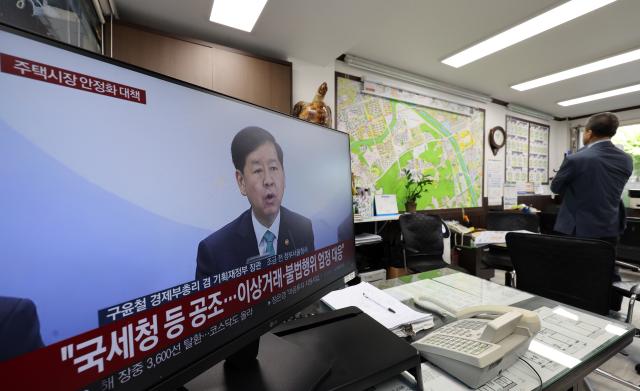
SEOUL, October 23 (AJP) - The South Korean government is moving to create a new real estate oversight agency with investigative powers, a plan that has divided opinion among policymakers and industry experts.
The Ministry of Land, Infrastructure and Transport said Thursday it is pushing for the establishment of the body under the Prime Minister’s Office to monitor illegal practices such as price manipulation, false listings, and fraudulent contracts. The proposed agency would be empowered to analyze tax, financial, and credit data to trace ownership and transaction patterns.
The proposed agency is the latest in a series of measures the Lee Jae Myung administration has taken to rein in rising housing prices in Seoul and surrounding Gyeonggi areas.
Supporters say the new authority could serve as a much-needed control tower, consolidating oversight now scattered among multiple government entities. They argue that clearer accountability could help restore fairness and transparency to a market often rattled by speculation and irregular trading.
“Even one or two abnormal transactions can significantly distort prices in a market with limited listings,” said Nam Hyuk-woo, a researcher at Woori Bank. “A dedicated oversight body could help prevent such distortions.”
Real estate agents have largely welcomed the move, saying it could help root out unlicensed brokers who often escape detection during joint inspections by the police and local governments.
But critics warn that the agency could add another layer of bureaucracy and further chill an already subdued property market.
“Tighter scrutiny — including recent tax audits on homes valued above 2 billion won — has already dampened buyer interest,” said one industry insider, who requested anonymity.
Some academics and policy experts also questioned whether a new agency is necessary.
“There is a risk that the organization will focus more on justifying its existence than achieving meaningful results,” said Lee Eun-hyung, a researcher at the Korea Construction Policy Institute.
Ko Jun-seok, a professor at Yonsei University, agreed on the need to curb false listings but cautioned against overreach. “The government should coordinate with existing agencies rather than interfere excessively in market operations,” he said.
* This article, published by Aju Business Daily, was translated by AI and edited by AJP.
Copyright ⓒ Aju Press All rights reserved.



